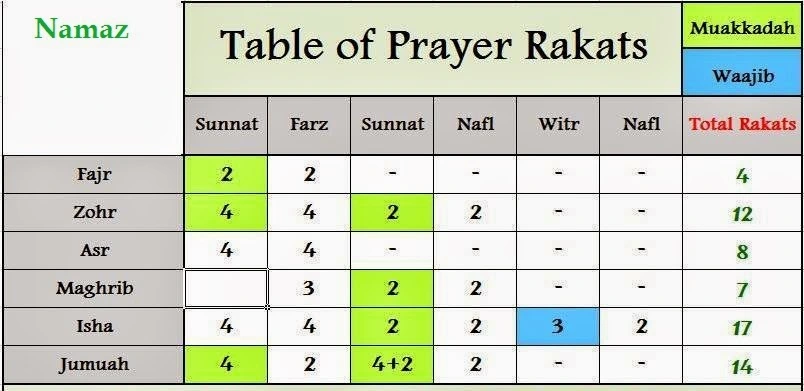Fajr prayer is first among other prayers, and it is very special for every Muslim. It is performed early in the morning, before the world wakes up, reminding believers of their bond with Allah at the start of the day. Praying Fajr regularly brings blessings, peace in the heart, and spiritual strength to manage life’s challenges.
It is not easy to wake up early for Fajr prayer because it feels tough, and this is the main thing that helps you gain rewards. This prayer is one of the best acts of worship, showing real discipline, honesty, and love for Allah. Each time you pray Fajr on time, your faith becomes stronger and your day starts with purpose, setting you up for a more focused and productive life.
This guide will help you learn about the significance of salatul fajr. We also provide the benefits of praying at the proper time, guidance for women, details about rakats, and why it is important to recite Surah Yasin after Fajr. You will also learn about the rules, prayers, and simple tips to stay consistent, along with answers to common questions about this special prayer.
Fajr Prayer in Islam
It is a command from Allah and was strongly encouraged by Prophet Muhammad (ﷺ). It is performed in the early morning, marking the start of a new day both spiritually and physically. The Fajr prayer time begins when the first light appears on the horizon and ends at sunrise. Praying within this time brings great reward and blessings.
The Prophet (ﷺ) said: “Whoever prays the morning (fajr) prayer is under the protection of Allah.” (Muslim) This can show how important the Fajr prayer is for a believer. It is also called the key to blessings because it helps build discipline, focus, and inner strength.
For women, Fajr prayer is also as important as for men. Men can perform Fajr prayer at the mosque, and it is important for women to perform every prayer at home. Whether prayed in a mosque with others or alone, Fajr prayer represents devotion, thankfulness, and a new beginning to the day.
Importance & Virtues of Fajr
The importance of Fajr prayer is very high. It is the first step in a Muslim’s daily routine of accountability. The Qur’an emphasizes its recitation: “Indeed, the recitation of fajr is witnessed.” (Qur’an 17:78). This verse means that angels can also attend fajr prayer, which makes it even more special and full of blessings.
Praying Fajr brings countless virtues. Among them:
- Protection from Allah: According to hadith, those who pray Fajr are protected throughout the day.
- Light on the Day of Judgment: The Prophet (ﷺ) said that those who pray Fajr and Isha in congregation will be given full light on the Day of Resurrection.
- Barakah in livelihood: Many Muslims find that starting the day with Fajr brings clear thinking, better productivity, and peace of mind.
- Closeness to Allah: Fajr connects the believer with Allah at a time when the world is still asleep, showing true devotion.
The importance of Fajr prayer is very high. It is the first step in a Muslim’s daily routine of accountability. The Qur’an emphasizes its recitation: “Indeed, the recitation of fajr is witnessed.” (Qur’an 17:78). This verse means that angels can also attend fajr prayer, which makes it even more special and full of blessings.
The benefits of Fajr Sunnah are another hidden gem. The Prophet (ﷺ) said: “The two rakats of fajr are better than the world and all that it contains.” (Muslim). This shows how valuable the sunnah prayers are before the obligatory rakats.
Many scholars suggest reciting Surah Yasin after Fajr prayer to bring blessings into the day. While it is not required, this practice has been followed by generations of Muslims for its spiritual comfort and benefits.
Fajr Namaz Rakat — Sunnah & Fard
It is important to know how many rakats are in Fajr prayer. Basically, it consists of two sunnah rakats and two fard rakats, and there are a total of four rakats after combining them. This namaz has a simple structure but has high value in Islam. The Sunnah rakats are highly emphasized by the Prophet (ﷺ), who never missed them, even during travel. These Sunnah rakats prepare the heart and mind before standing for the obligatory two Fard rakats.
- 2 Sunnah rakats: prayed quietly, recommended before Fard.
- 2 Fard rakats: prayed aloud when in congregation, silently if alone.

The Prophet (ﷺ) described the Sunnah rakats as better than the world and all it contains, showing their extraordinary virtue. Missing them should be avoided, though if someone misses them, they may be made up after sunrise.
Fajr Prayer for Women
Fajr is the same for everyone in terms of rakats and recitation. However, it is important for women to pray at home, where their prayers are equally valid and accepted. And for men, the order is to perform every namaz at the mosque, as both can get the same reward after performing namaz.
Women should follow the same etiquettes: making wudu, wearing modest clothing, and maintaining concentration. If leading other women, the female imam stands among them, not in front as men do.
This guidance ensures that Fajr remains accessible and spiritually uplifting for both genders without any added burden.

Sunnah vs Fard — Understanding the Difference
In Fajr, the distinction between Sunnah and Fard is very important.
- Sunnah rakats: These prayers are strongly recommended but not required. Skipping them often without a reason is disliked. If you miss them, you can pray them after sunrise.
- Fard rakats: These prayers are required. Missing them without a good reason is sinful, and if you miss them, you must make them up later.
The benefits of Fajr Sunnah are immense. It helps a Muslim get ready in heart and mind before the required prayer. Even when you are short on time, try to pray the Sunnah rakats first, unless sunrise is very near.
This balanced system shows Allah’s mercy: Sunnah gives extra rewards like a shield, while Fard is a must-do duty.
Benefits of Fajr Prayer
Fajr prayer is not just spiritual. When you wake up early and perform prayer, you stay fresh and healthy and work confidently. Waking up early for Fajr starts the day right, builds discipline, improves time use, and gives a sense of success before most people are awake.
Some of the well-known benefits include:
- Peace of mind: Fajr removes stress and brings inner calm.
- Discipline & routine: Praying Fajr every day sets a steady schedule and stops laziness.
- Physical health: Getting up early boosts metabolism, improves sleep, and gives time for morning exercise.
- Spiritual blessings: Angels see this prayer, and the Qur’an promises a special reward.
The Prophet (ﷺ) promised that those who pray fajr in congregation are under Allah’s protection for the entire day. This is why salatul fajr is seen as both a safeguard and a source of blessings.
Reciting Surah Yasin After Fajr
The best thing that is loved by all Muslims is reciting Surah Yasin after Fajr. It is not essential but recommended because of the countless virtues attached to Surah Yasin. Scholars call it the heart of the Quran, and reciting it in the quiet hours of dawn can bring great blessings into one’s day.
Even though no hadith makes it required, many Muslims throughout history say this practice lifts the heart, reduces stress, and gives spiritual comfort.
Common Mistakes
Fajr is easy to perform, but many people make mistakes that lower its value. Some wait until after sunrise, thinking it still counts, while others pray too fast without focus. Many also skip the Sunnah rakats, even though the Prophet (ﷺ) stressed how important they are.
The second mistake is seeing Fajr as just a habit instead of real worship. Reading without thinking or skipping the duas after prayer weakens the spiritual bond. Some also forget the rewards of reading the Qur’an, like Surah Yasin, after fajr. Avoiding these mistakes helps you enjoy the full beauty and benefits of Fajr.
Qaza and Missed Fajr
Sometimes a person may miss Fajr because they oversleep or for another reason. Islam teaches to pray it later as qaza. If you miss Fajr, pray it as soon as you wake or remember.
Some people ask how to pray Fajr qaza. You pray it the same way as the normal Fajr: 2 Sunnah and then 2 Fard if there’s time. But if sunrise is near, pray the Fard first and do the Sunnah later.
The question arises here: can I pray Fajr qaza with Zuhr? The answer is yes, you can combine a missed Fajr with your next available prayer, but it is good to make it up immediately when remembered. Islam teaches responsibility, and qaza is an opportunity to correct mistakes with sincerity.
There’s also the question, can I pray Fajr qaza with Zuhr? The answer is yes—you can combine a missed Fajr with your next available prayer, but it’s better to make it up immediately when remembered. Islam teaches responsibility, and qaza is an opportunity to correct mistakes with sincerity.
FAQs
How do you pray fajr?
Basically, there are 2 Sunnah rakats and 2 Fard rakats in the Fajr. These rakats start with Surah al-Fatiha and another surah, then complete the prayer with salam (taslim).
How many rakat of fajr are there?
If we talk about the total rakats of Fajr, it can contain 4 rakats, where 2 are Sunnah and 2 are Fard. The Sunnah is highly recommended, and Fard is mandatory, but also very important.
How to pray Salat al Fajr?
Make intention, begin with Takbir, recite Surah al Fatihah and another surah, perform ruku and sujood, and complete two rakats for both Sunnah and Fard prayers.
Can Fajr be prayed after sunrise?
The ending time of Fajr is sunrise. If it can be missed by someone, it is considered as qaza, quickly performed after waking up or later in the day.
How to offer Fajr Qaza Namaz?
Pray 2 Sunnah and 2 Fard if you missed them before sunrise. If only time for Fard remains, complete those and pray Sunnah later.
Can I pray fajr qaza with zuhr?
Yes, you can pray the missed prayer with Zuhr, but it’s better to do it as soon as you can instead of waiting.
Can I offer fajr sunnah after fard?
In case you missed Sunnah before performing Fard, you can pray it after sunrise. The Prophet (ﷺ) allowed making it up later in the morning.
What to do if you miss Fajr sunnah?
Pray them after sunrise, best along with the Duha prayer, to keep consistency and gain reward.
Final Verdict
Fajr is an important prayer in Islam and it is not just an obligation. By praying it on time, doing both Sunnah and Fard rakats, and reading after fajr like Surah Yasin, you gain spiritual strength and deep peace. Staying regular with fajr shows true devotion, and Allah promises a huge reward for it. To make your prayer stronger and understand it better, guides like MyQuranTutor can help you learn more.
For reading Quran in prayers, it is must to learn Quran with tajweed properly. You can join learn to read Quran course if you feel your recitation is not perfect. You can learn the Islam under the guidance of our male Quran Teachers and female Quran teachers.








